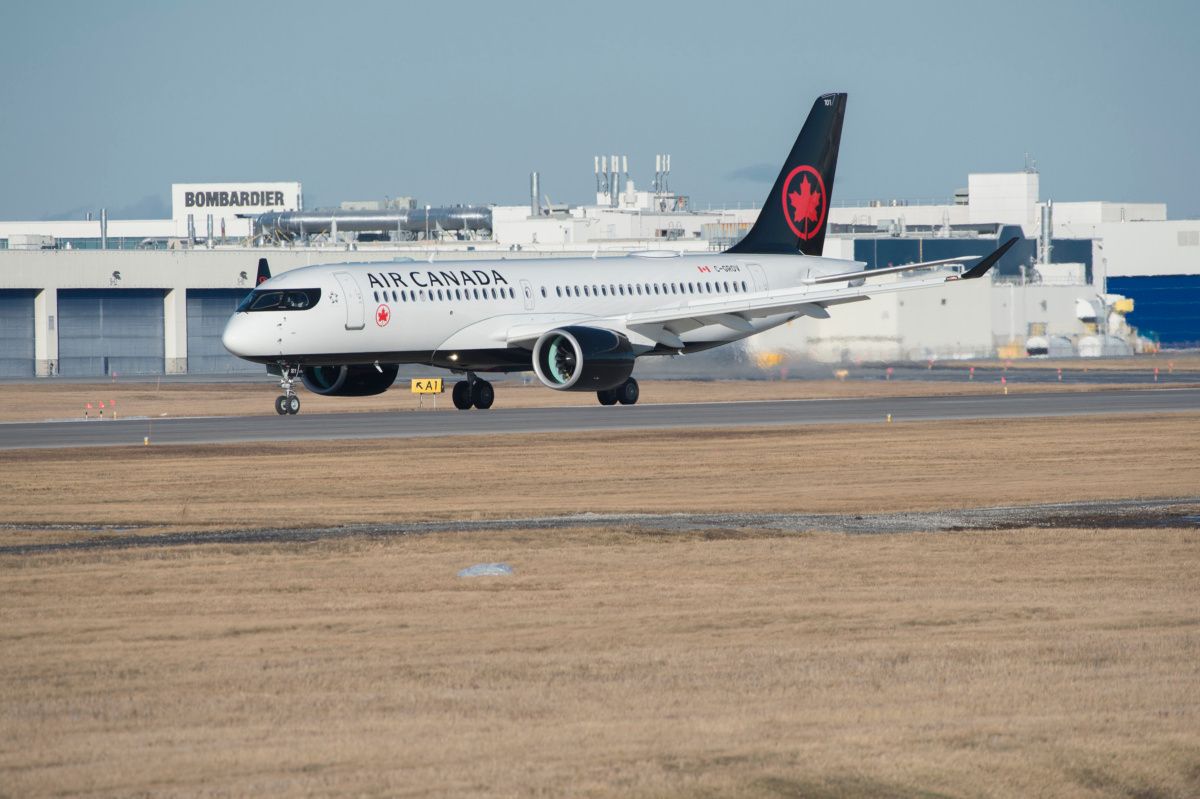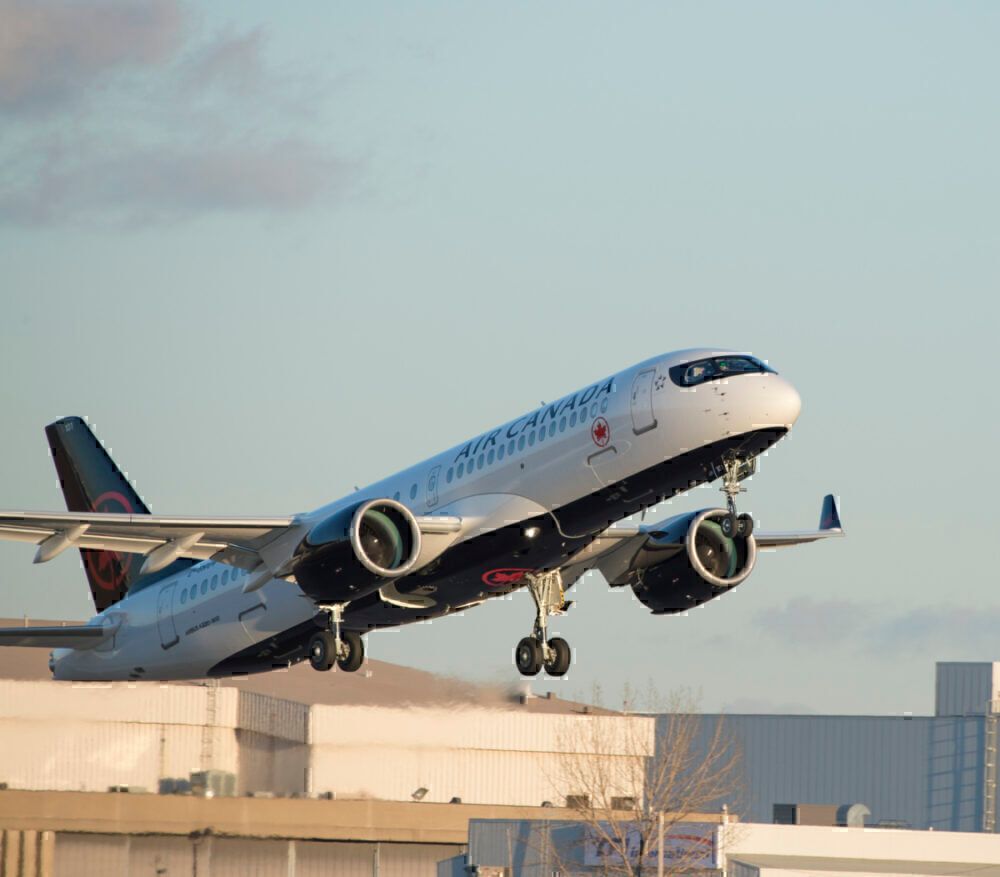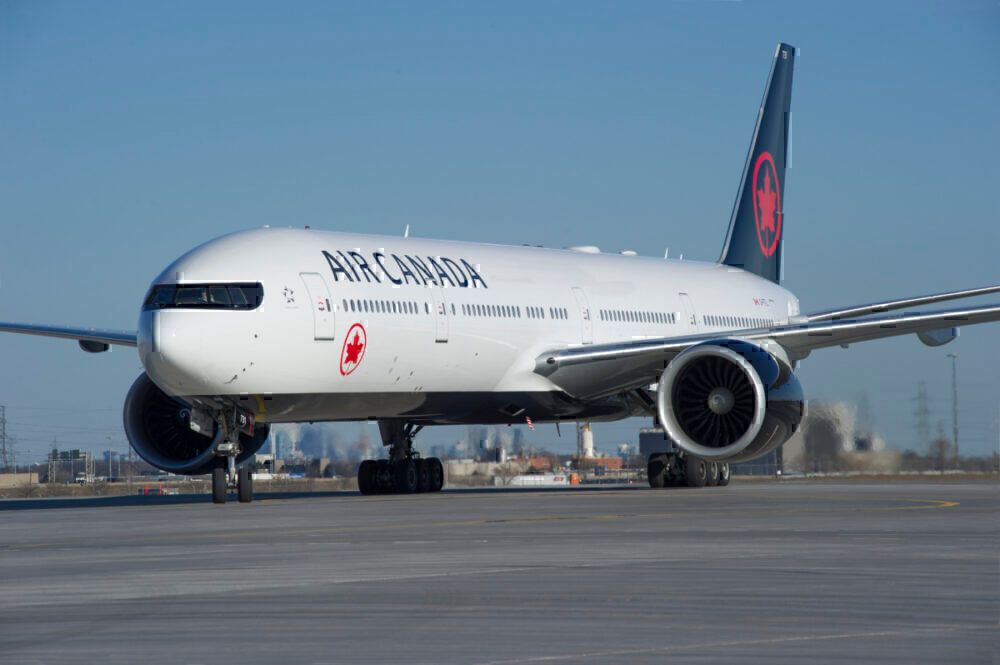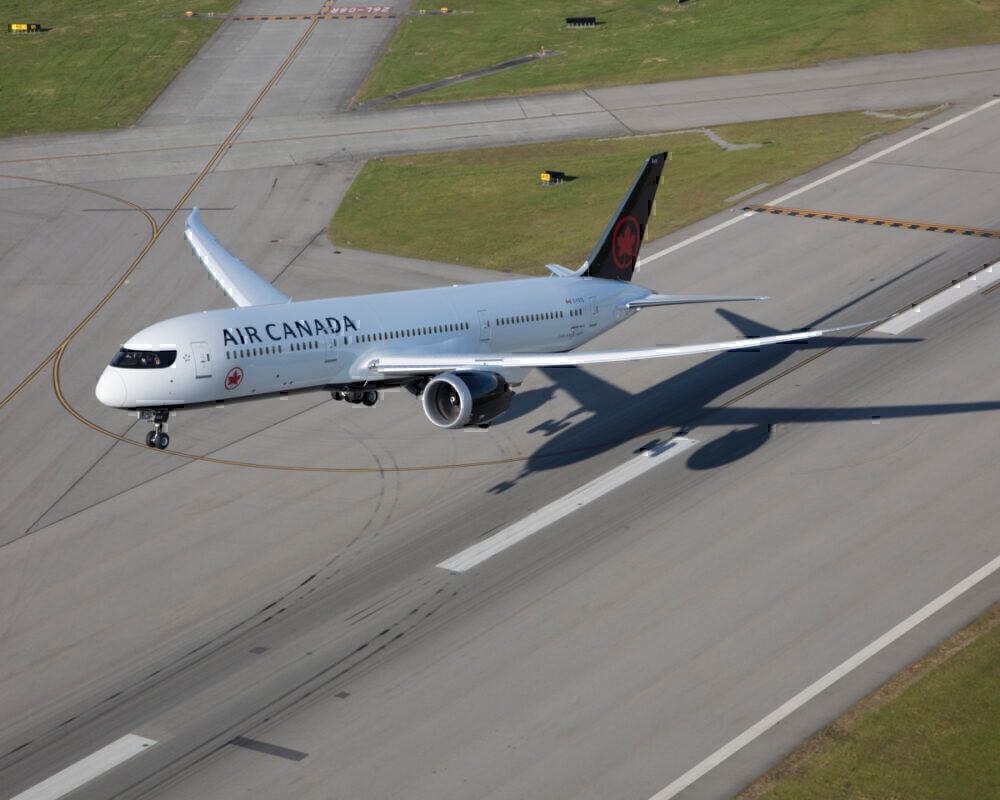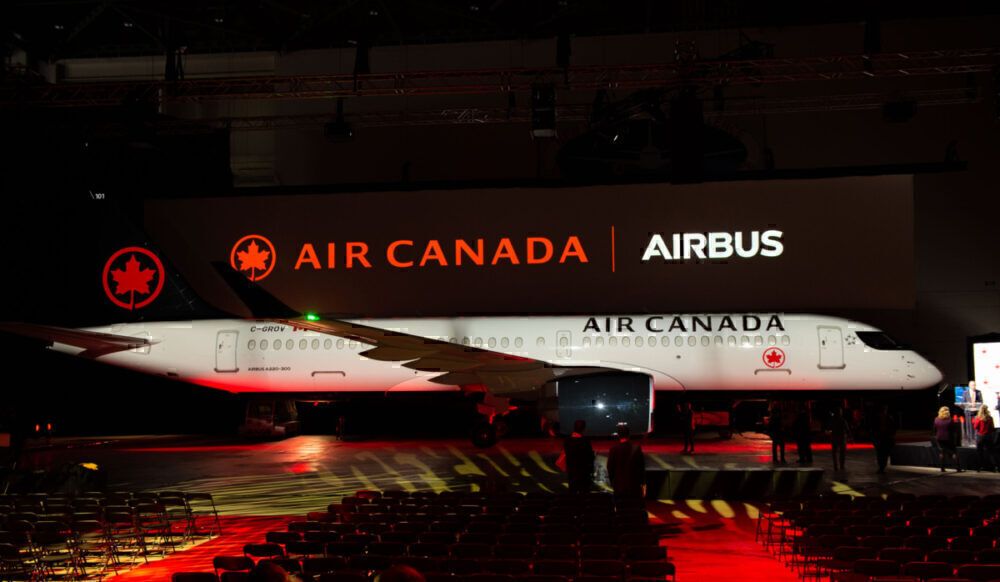Air Canada has secured two longer-term refinancing transaction agreements worth about C$1.52 billion (~US$1.14 billion), replacing short-term facilities. The first transaction, worth C$787.7 million (~US$588.7 million), covers financing for 18 Airbus A220 aircraft. The refinancing lowers Air Canada's short-term cash expenditures, which is a win for the carrier.
Air Canada's A220 refinancing
The majority of the C$1.52 billion transaction consists of a committed secured facility worth C$787.7 million to finance Air Canada's purchase of 18 Airbus A220-300 aircraft. The refinancing has a term of 12 years from the delivery of each plane on a floating interest basis. This equates to an approximate interest rate of 2.39% using current rates.
Stay informed: Sign up for our daily aviation news digest.
Concurrently, Air Canada will repay the C$787.7 bridge financing for the same 18 A220 aircraft that was put in place in April 2020. Any amount that is left unpaid under the bridge financing will be repaid following the financing of the 18th A220, which is expected in the first quarter of 2021.
Essentially, Air Canada is paying off its old aircraft financing plan for 18 A220s and, instead, going for a better long-term financing option that will reduce the airline's short-term cash expenditures on new aircraft.
New Enhanced Equipment Trust Certificates (EETC)
Air Canada completed a second transaction of the placement of two tranches of Enhanced Equipment Trust Certificates (EETCs). The airline used the proceeds of these EETCs to purchase equipment notes previously issued by Air Canada secured by three Boeing 787-9s, three Boeing 777-300ERs, one Boeing 777-200LR, and nine Airbus A321-200s.
The two tranches have a combined aggregate face amount of US$552.6 million, with a weighted average interest rate of 5.73%. Class A certificates total US$452.6 billion with an annual interest rate of 5.25% with a final expected distribution date of April 1st, 2029. Class B certificates total US$100 million and have an interest rate of 9% per annum with an expected final distribution date of October 1st, 2025.
The proceeds of this financing were used, along with some cash on hand at the airline, to repay the US$600 million 364-day term loan the carrier initially put in place back in April.
All in all, the debt maturities in 2021 will be reduced by approximately C$1.42 billion, down to C$1.71 billion, once the bridge loans are repaid in full.
Pierre Houle, Managing Director and Treasurer of AIr Canada, stated the following in a press release viewed by Simple Flying:
"These two refinancing transactions were completed in an extremely challenging environment and continue to demonstrate Air Canada's ability to access financial markets on attractive terms and conditions to either improve liquidity or to refinance existing debt to push out maturities longer term and lower overall financial risk."
Why does Air Canada want to keep taking A220s?
Most airlines worldwide have been deferring new aircraft deliveries amid the ongoing crisis, in which cash preservation is critical. However, there is one aircraft that served airlines well: the Airbus A220. Using the A220, Air Canada has kept viable some links that would not otherwise be possible with other aircraft, thus offering flights for passengers and cargo, while also not running losses due to the aircraft's fuel efficiency and versatility.
However, Air Canada has previously threatened to cancel A220 orders. As of writing, the airline has not acted upon that even as international travel restrictions remain.
Overall, airlines are looking at ways to secure their long-term security and defer short-term expenditures. Refinancing debt is one way Air Canada is delaying short-term maturities, as the airline continues to take delivery of what it calls a "game-changing" aircraft: the Airbus A220.
What do you make of Air Canada's refinancing? Are you glad to see Air Canada continue to take Airbus A220s? Let us know in the comments!

